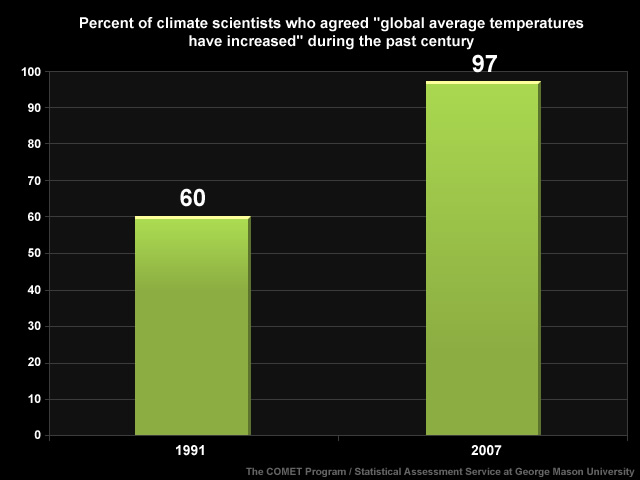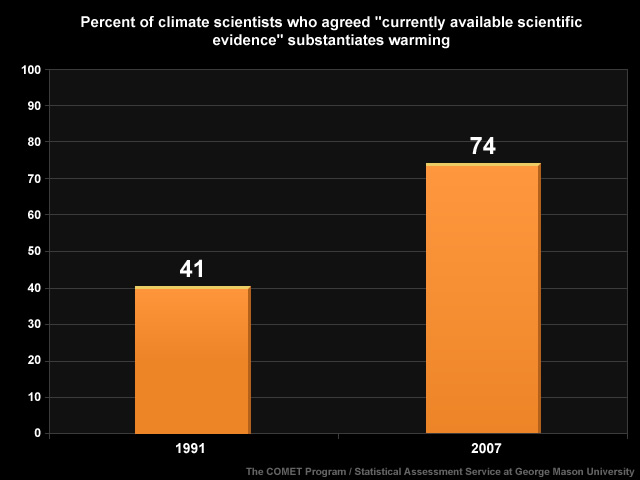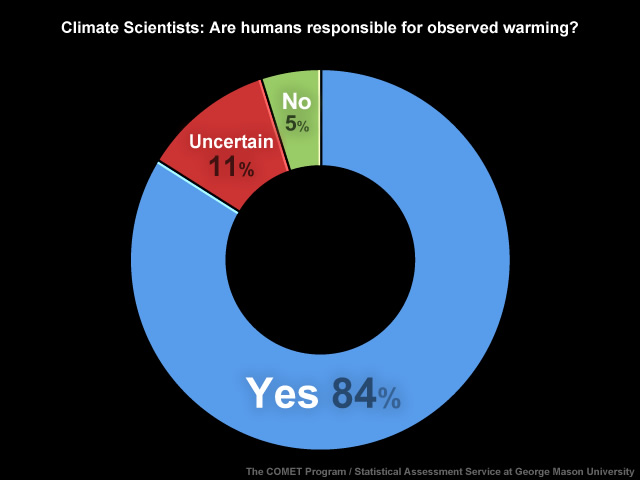Consensus?
The IPCC is a very important process for determining consensus on climate change, but there are other ways to find out what scientists who know the most about climate really think. In 2007, the Statistical Assessment Service at George Mason University conducted a random survey of U.S. scientists who:
- Are members of either the American Meteorological Society (AMS) or the American Geophysical Union (AGU)
- Are listed in American Men and Women of Science, 23rd Ed.
- Live in the U.S.
- Have expertise and/or professional experience in the area of climate science



Ninety-seven percent of the 489 respondents agreed that "global average temperatures have increased" during the past century. That's up from 60% in 1991. Eighty-four percent said they personally believed human-induced warming is occurring, and 74% said "currently available scientific evidence" substantiates this, up from 41% in 1991. Only 5% said that human activity doesn't contribute to greenhouse warming, and 11% were uncertain. So the survey does indicate the bulk of climate scientists—those most knowledgeable about the field—now agree that human activity contributes to global warming.
As with all science that affects our lives, we need to be educated consumers. Do your homework, starting with the IPCC reports. All of the reports provide interesting information, although they are lengthy and quite technical. The AR4 Synthesis Report (www.ipcc.ch/pdf/assessment-report/ar4/syr/ar4_syr.pdf) is easy to read and provides a good summary of the other reports. Also look at the work from other authoritative sources such as the National Academy of Science (NAS), the American Meteorological Society (AMS), the American Geophysical Union (AGU), the American Association for the Advancement of Science (AAAS), the National Oceanic & Atmospheric Administration (NOAA), the Environmental Protection Agency (EPA), the National Aeronautics and Space Administration (NASA), etc..
When looking at information (particularly on the Internet) look at the source of the information—is it likely to be biased one way or the other? If so, look for alternative views from other sources and see what they say. Ask questions—if you read something that seems to contradict something else, then dig deeper. Trace the origins of the statement to the original source. Is it a peer-reviewed journal or something less exacting? What are the credentials of the author—is it a scientist with climate expertise?